What is the future of Caribbean festivals?
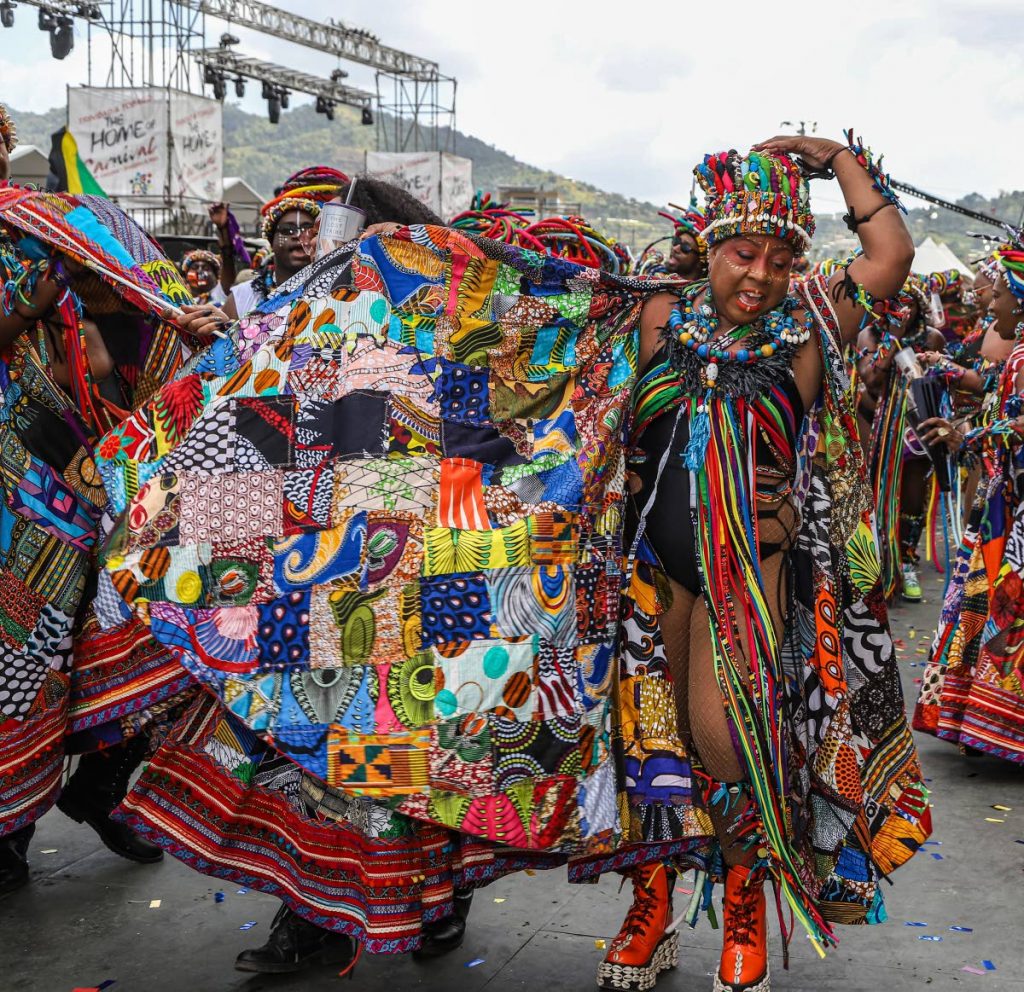
What will Carnival 2030 look like? Green? A greater focus on heritage? Greater use of virtual reality?
It is hard to imagine in the wake of the covid19 pandemic. There is little doubt that the pandemic has altered how people live and interact but is that alteration temporary or permanent?
For Caribbean societies and festivals what does a post-covid19 world look like?
A panel hosted by the Inter-American Development Bank (IDB) examined these and other issues about the future of festivals in the region.
The Pivot Series: The Future of Festivals was held on June 9 and looked at whether or not the region could reinvent the way it celebrates given what has happened with covid19. The panel was composed of Vashtie Dookiesingh, senior specialist, IDB Lab; Valmiki Maharaj, bandleader, The Lost Tribe, Tribe Carnival Group; Carol Roberts-Reifer, CEO, Barbados National Cultural Foundation and Kamal Bankay, chairman, Jamaica Sports and Entertainment Network. The IDB’s development storyteller Golda Lee Bruce moderated the event.
The hour-long webinar began by looking at how Caribbean countries were looking to move forward post-covid19, which has stalled the entertainment and event sectors in many, if not all, countries.
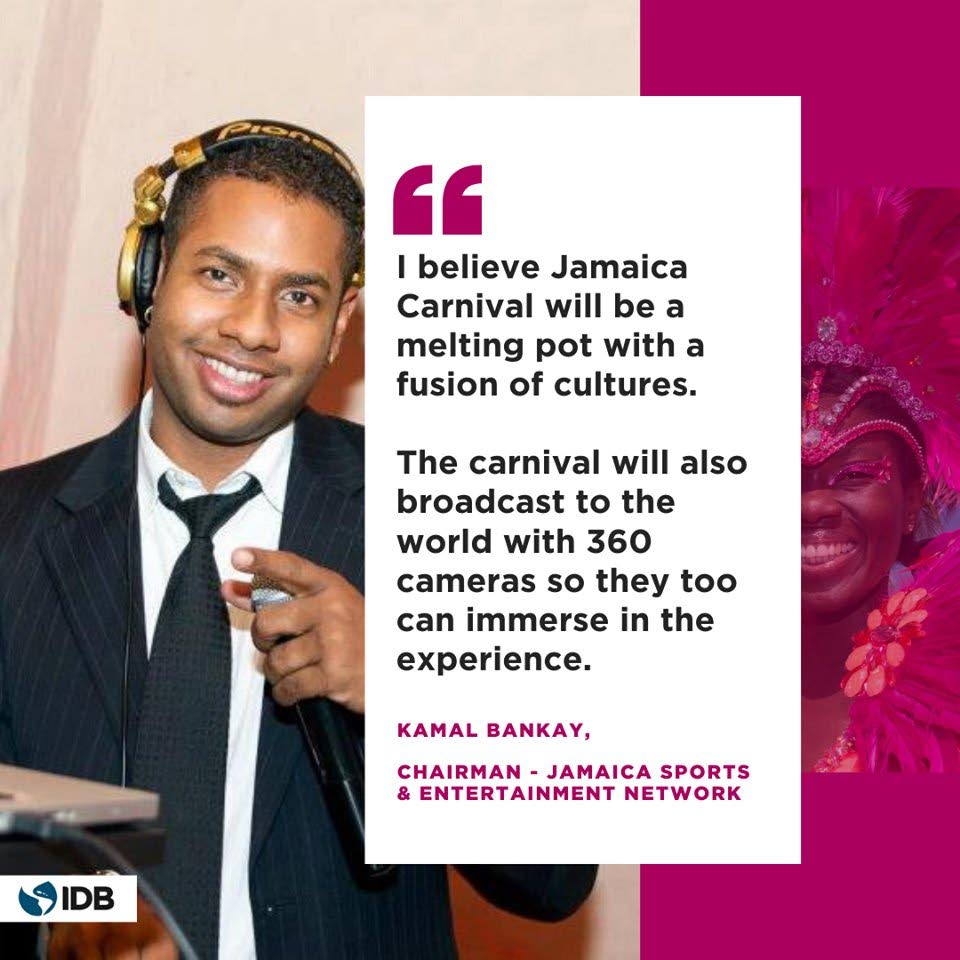
Bankay said to look forward one had to examine the pre-covid Jamaican entertainment sector, where up to 20,000 events per year were held before the pandemic.
Covid19 showed gathering in large groups of people right now is impossible, he said.
“Most of our major festivals are 50/50 tourists and locals. Tourists are not coming here so that leaves you with 50 per cent of your potential patronage, not able to participate.
“Then you say how comfortable are people going to be moving out into the world and participating and rubbing shoulders with each other,” he said.
In a post-covid Jamaica, event organisers will have to hold many more smaller events.
“Cumulatively, that would make up the 10,000 event that you probably used to do once or twice per year…”
He said there will be a lot more microevents popping up and people will be nimbler in terms of how events are produced.
“You are going to see a lot of niceties stripped down. The frills, those kinds of things are not going to be as necessary.”
In Barbados, the annual Crop Over has been replaced, in the interim, by a national training programme.
Roberts-Reifer said the covid19 restrictions presented a wonderful opportunity for the country to “take a step back and look at the state of not only the festival but of the sector.
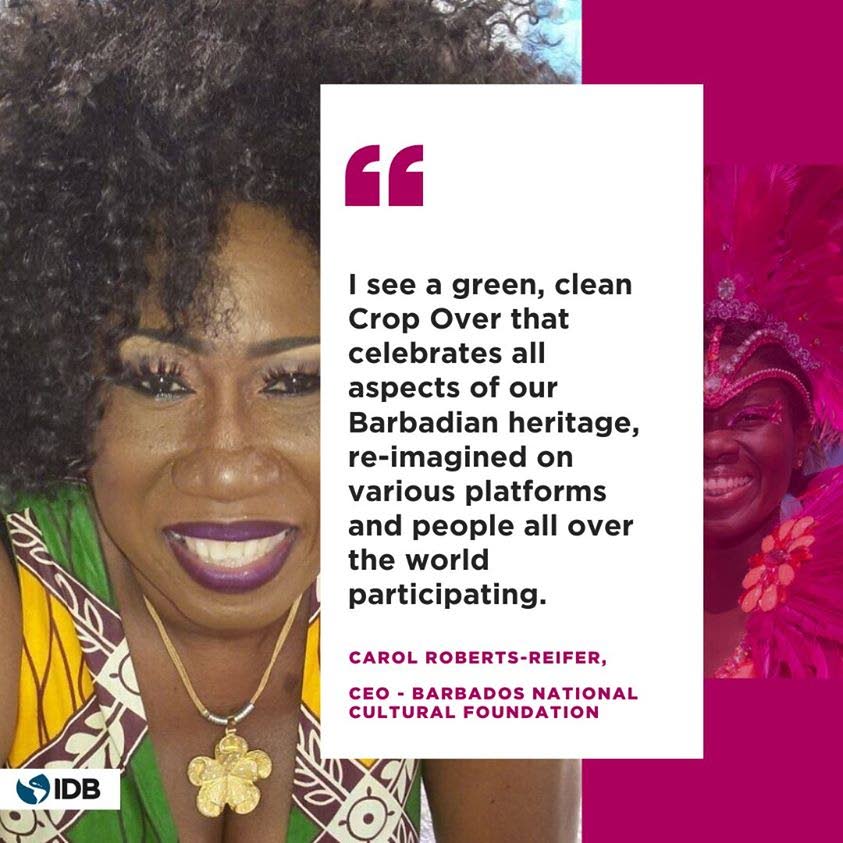
“Come up with meaningful ways to support the participants; examine and identify gaps and attempt to fill them and carefully craft training and financial support so that participants in the sector, should this happen again, have alternatives to earn a living.”
She said Barbados’ national training programme, allows the sector’s organisers to "shore up the skills of the practitioners in the sector and get them ready for market.”
Maharaj said Tribe has gone into a mode of scenario planning that is based on "safety first."
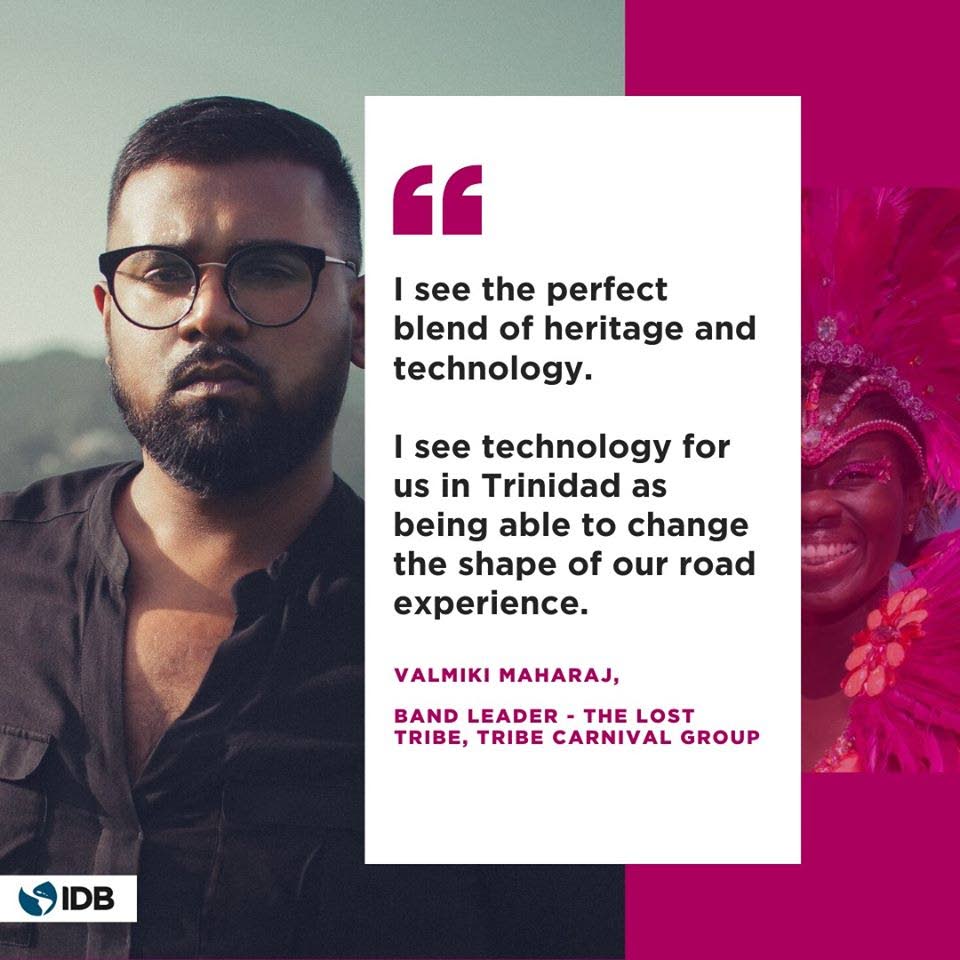
He said regional event organisers needed to find ways to “analyse and breakdown our product and experience and analyse ways of how that could be adapted to whatever this concept of new normal may be.”
Tribe has been working on ways – if the borders were to remain closed – to take the Caribbean to tourists and keep them inspired during this time, he added.
The IDB Lab is interested in getting data on the economic and social impact of festivals across the region, Dookiesingh said. The IDB lab is the innovation laboratory of the IDB group. But there has been an issue of quantifying the economic impact of festivals and carnivals.
She said the issue with quantifying the economic impact of festivals and carnivals has a lot to do with the fact that this is not traditionally captured in the GDPs of individual Caribbean countries.
She said there was a high degree of informality in how things get monetised in those festivals.
“Because of the high degree of informality and because of the use of a lot of gig-economy-type work...a lot of this is short-term contracts, because it is very seasonal, but it makes an impact into the livelihoods of people,” she said.
The panel also addressed the question of whether things will go back to normal after covid19 or if the Caribbean will see something completely different. That normality would depend on the consumer and the global health forecast, Bankay said.
What happens will depend on the strides made in the fight against the virus, such as getting a vaccine, developing herd immunity.
“One of those actions could return (us) to normalcy,” he said.
However, he said if the virus carries into 2021 with the same potency and high death rates, then the options for returning to normality will be delayed.
He said the entertainment industry evolved organically, and to get back there is going to depend on what human nature wants the festivals to be like.
But for Roberts-Reifer there is absolutely no way the Caribbean would and should return to what was known before. For her, this is an opportunity to step back, review, reassess, recharge, repurpose and reimagine.
While she agreed with Bankay that listening to consumers was necessary to see where regional festivals and events would go, it was also about having a clear vision for those festivals.
“What I think we’ve discovered over time, as you visit carnival to carnival in the Caribbean, is, year after year, less and less of the heritage components (are visible and), the real underpinnings of the festival are being lost because we seem to be pitching to the limer, the partier and what quite frankly brings in the bucks and brings in the people,” Roberts-Reifer said.
She said covid19 was forcing societies to look at heritage components and ways of making them more meaningful.
For her, the pandemic also presented the opportunity for Caribbean collaboration.
“What are the possibilities and possible synergies? And not so much to share carnivals among each other – I think that happens organically, quite well – but to share this Caribbean experience with as much of the world as possible?”
She said in order to do that she does not see how the region cannot begin to consider, creatively, content on a digital platform. Digital platforms have been the lifesaver of the entertainment industry during the pandemic.
But is it the answer going forward?
Bankay said digital platforms can provide small, additional revenue streams for some, but would never be able to replace live experiences, as Caribbean people like to gather.
He added digital platforms give a quick peek to whet one’s appetite to get back in the game.
Roberts-Reifer said the region loves to gather and lime but there were other aspects of Caribbean carnivals and festivals that can be monetised and put on digital platforms, such as basic costume-making and aspects of the culinary arts.
For Maharaj, the festival will never be the same, but “the way we communicate it, the way we create an experience is going to be based on who the customer is.”
He said if the borders remained closed it might be a totally local Carnival, so how do “we change our communication, that was previously shaped to invite people toward TT, to an explosion of patriotism and a 'we are we' Carnival?”
He said Carnival 2022 is also going to be vastly different from what is experienced in 2021.
“We aren’t planning for one new normal, but a variety of them as the years progress,” he said.
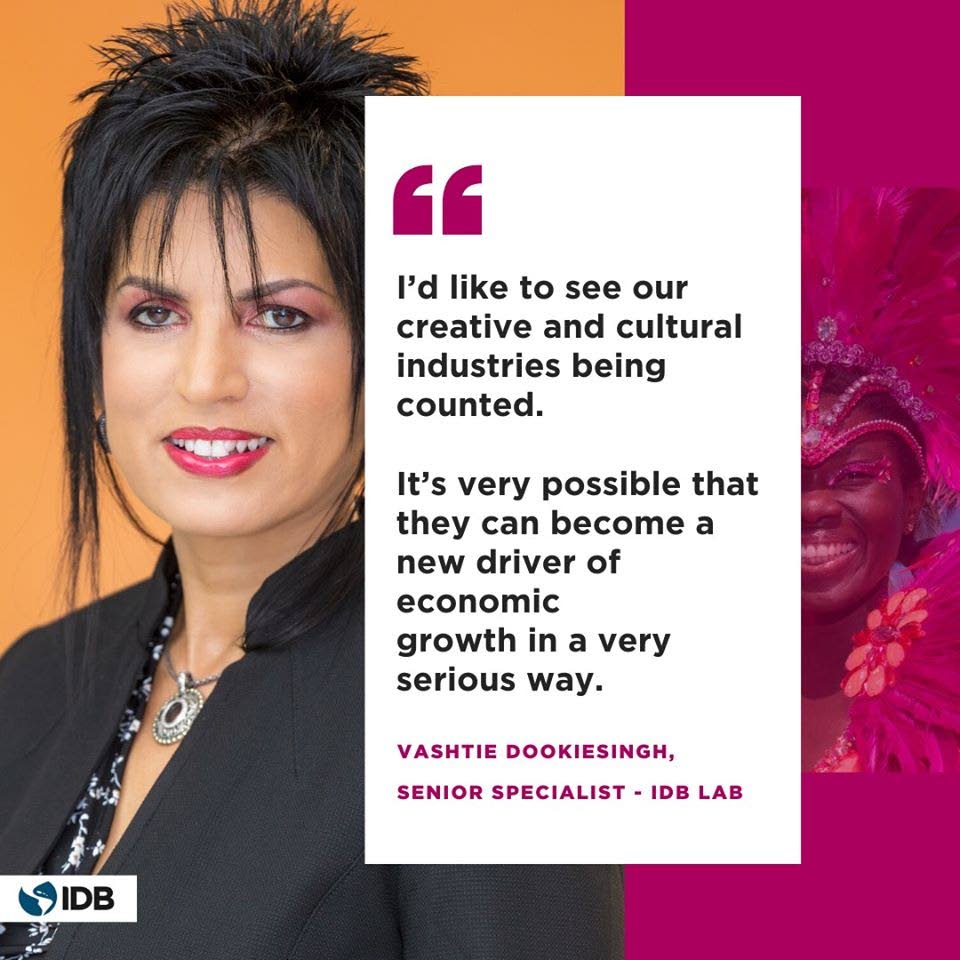
Dookiesingh and the IDB lab are looking at how digital technologies and digitisation can be curated in a way that is meaningful to different sectors of the economy.
“But when we talk about festivals, as the panellists have pointed out, it is very culturally rooted, it is tactile, it is an experience.”
She said the idea is not to replace the experience in its entirety but for many small entrepreneurs it is important to start exploring different channels.
She said partnerships and collaboration were needed to come up with solutions as to how to tap into new channels and maybe look at different types of consumer bases.
While she does not think there is one solution, it would be remiss of the region “to write off digital channels, platforms and experiences completely.”
For the panel and its viewers, it was clear that a post-covid Caribbean required collaboration and for Roberts-Reifer that collaboration could be protocols to limit negative environmental footprints or of prices and pricing of events and products in the region.
But for them a 2030 carnival in TT, Barbados, Jamaica or anywhere else in the Caribbean would be green, clean, incorporate technology, have a strong heritage component and possibly become a new driver of economic growth.
Dookiesingh sees future Caribbean festivals maybe, one day, even replacing the traditional "sun and sea" tourist experience.
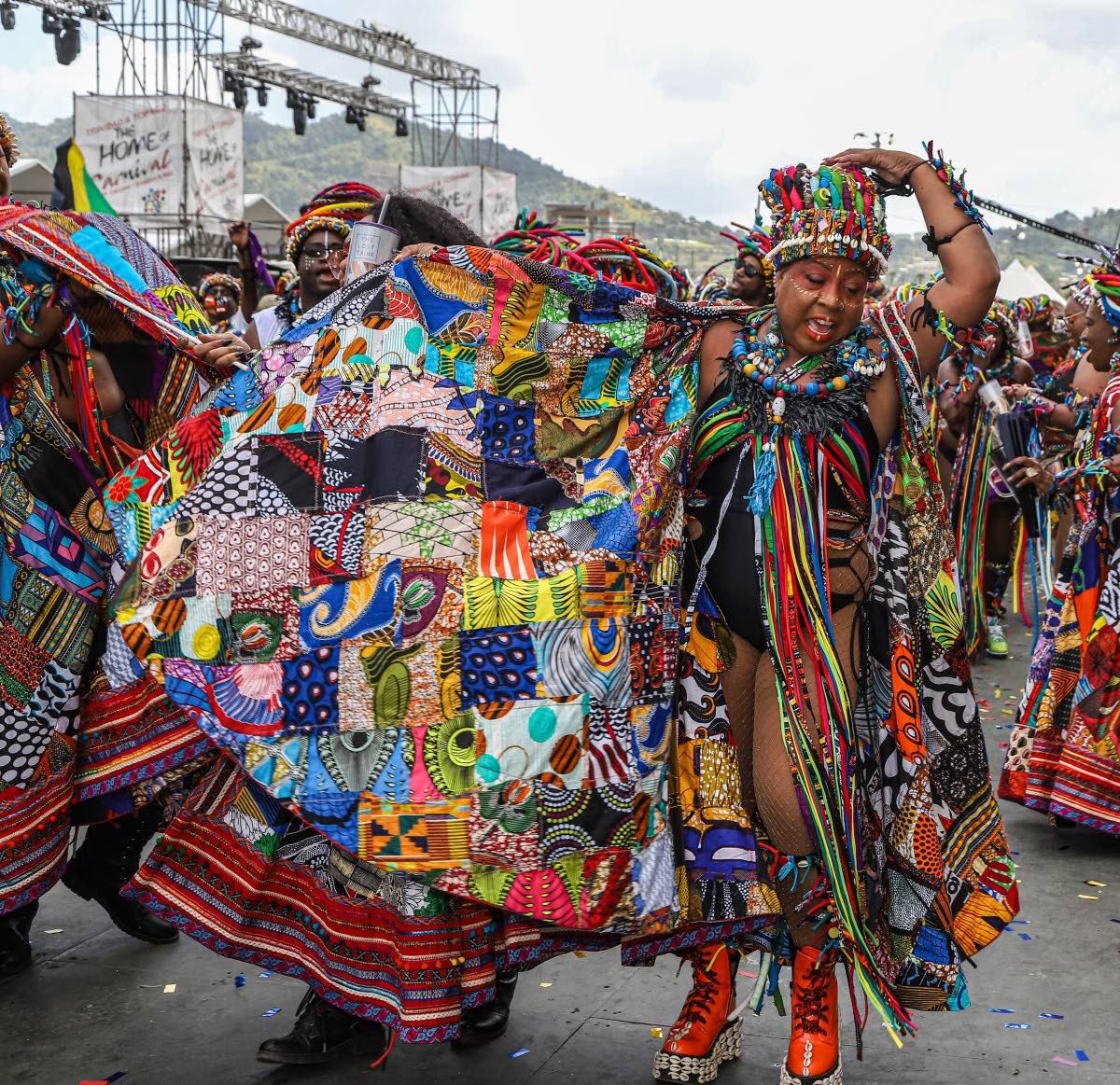

Comments
"What is the future of Caribbean festivals?"